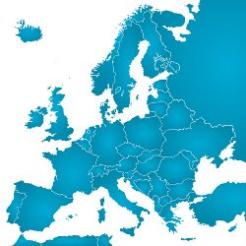The future of Europe depends on unleashing the potential of civil society, believes Sir Stuart Etherington.
In my recent meetings at the European Economic and Social Committee (EESC) I’ve been involved in discussions on the future of EU policies, including the European Social Fund (ESF), the review of procurement rules and new forms of social entrepreneurship. Through this work it’s increasingly clear to me that the EU institutions need fresh thinking; we need to identify new solutions to overcome the current euro crisis.
Collective problem
We should not look at this as an issue that only affects Eurozone members, as all economies in Europe are deeply interwoven and any further uncertainty could have a major knock-on effect on all countries.
The original design of the euro was developed in a very different world. Since then the underlying imbalances in the economies of the north and south of Europe have been highlighted in the stark reality of the economic crash.
The UK’s position – although not directly dependent on the euro – would nevertheless benefit from a stable Eurozone. This would improve our own chances of economic recovery, since over 40 per cent of our trade is with the Eurozone.
However, if the situation is not resolved we could witness a further deterioration in the economic outlook which could lead to further social unrest. This could have a serious impact, with the potential for increasing unemployment, widening protest movements and the rise of extremist politics which could even herald the gradual breakup of the EU.
This would be a real tragedy given the energy and resources that have been invested by western powers – led by the UK and US following Churchill’s famous 1946 speech at Zurich university – in rebuilding Europe as a continent of democracy. This was only finally achieved in the early 21st century with the eastward expansion of the EU after the end of the Cold War.
Civil society is increasingly recognised by the EU as a force for democracy and stability. This will continue to be the case as citizens become increasingly aware that they can play a key role as participants in their local communities, and as they push for greater transparency from institutions.
If we move towards the harder scenario of economic decline and social tension, then the role of civil society will be even more important to maintain social cohesion and to establish forms of support for the most vulnerable in our societies.
On the other hand, if we are now to see a stabilisation of the situation in Europe, there is a growing recognition that civil society organisations can play a key role in restarting growth in Europe. This will be increasingly necessary as our organisations are uniquely placed to identify innovative solutions to tough social issues.
However the euro crisis is resolved, I believe that civil society organisations will be central to building the future of Europe – developing forms of local engagement, delivering social services and enabling voices of all parts of our communities to be heard.
Key fora like the EESC allow us to engage with the legislative process. This is a crucial committee that brings together business, trade unions and the voluntary sector.
Tough lessons
At the same time, new groupings like the European Network of National Associations for Civil Society (ENNA) – of which NCVO is a founder member – can provide the bridge for organisations in the UK and across Europe to learn from each other and share skills on their core approaches towards participation, membership, fundraising and new growth.
For the EU to emerge stronger, our political leaders must learn tough lessons: they must ensure that EU institutions become more flexible and open to the needs of their citizens. If they are able to be more transparent and reduce the burden of bureaucracy they will enable citizens to rebuild their countries and establish faster, more flexible solutions.
Now is the time to give space to people and civil society. They will be the source of the fresh solutions Brussels is looking for.
Sir Stuart Etherington is chief executive of NCVO









